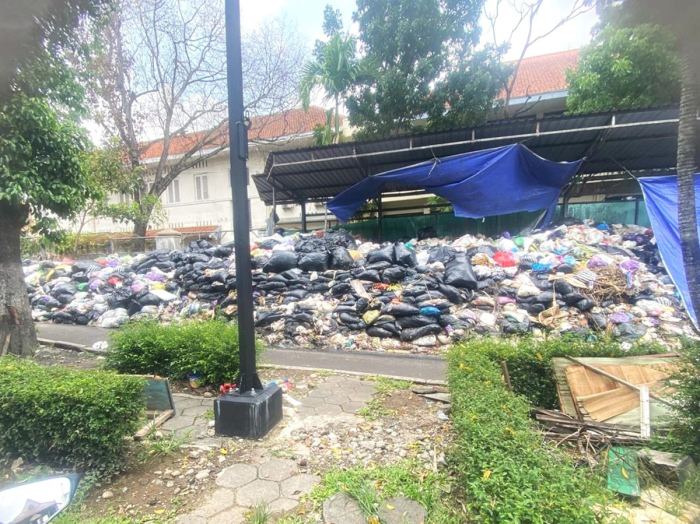
SURABAYA, Indonesia — Authorities in Indonesia are allowing two years of uncollected garbage to pile up next to a church building and a Catholic university, sources said.
The unhygienic and foul-smelling garbage — bagged, spilling out of broken bags or unbagged — in Yogyakarta city, capital of the Special Region of Yogyakarta, Central Java Province that has not been collected for two years is becoming increasingly unhealthy for members of St. Antonius Padua Catholic Church and those at the nearby Jesuit campus of Sanata Dharma Catholic University.
“The garbage problem has been around for a long time, since the 1980s, causing disturbing stench during the rainy season, when the garbage mixes with rainwater to become mud,” congregation member Susi Sasmita told Morning Star News by phone. “This situation has worsened in the last few years and is very disturbing to the congregation. Imagine if this case happened at a mosque — the situation could be chaotic.”
She expressed regret that Christians tend to accept arbitrary and discriminatory treatment.
“We have done it without protest — as a result, it gets worse,” Susi said. “In addition to being disturbed by the pungent smell of garbage, churchgoers also find it difficult to park their vehicles on the 75-80 meter stretch of this road.”
A priest and lecturer at the Catholic university, the Rev. Andalas Mutiara, staged a protest on Oct. 24 captured in a widely circulated video. Lying in a cross-like position atop a large pile of rubbish next to the campus, he appealed to officials to address critical waste management issues.
“We don’t want to normalize garbage, let alone embrace a garbage culture,” Andalas said. “The garbage Golgotha is a prophetic call from the Catholic Church that wants us not to crucify God in the garbage, nor all creation in the garbage that we produce.”
In apparent response, the Yogyakarta Special Region Government reported on its website (jogjaprov.go.id) that the minister of Environment/Head of the Indonesian Environmental Control Agency, Hanif Faisol Nurofiq, made a sudden inspection of the city’s waste disposal site on Nov. 18.
“We ask the governor and the head of the Office of Waste Management to make and build waste banks in upstream units immediately and then increase the number of environmental educators to educate the public about sorting and selecting waste,” Hanif stated. “That is the only temporary step that should be taken while waiting for the local government to prepare the final technology.”
The governor of the Special Region of Yogyakarta, Sultan Hamengku Buwono X, asked the mayor and regional secretary of Yogyakarta the next day to write to or meet Minister Hanif and explain the condition of the waste depot in the area he leads, according to jogjaprov.go.id.
Muslims account for 83.3% of Indonesia’s population, while 11.43% identify as Christian, with the Evangelical population estimated at 3.23%, according to the Joshua Project.
Service disrupted
In East Java Province, members of a Catholic church in Surabaya on Nov. 20 faced a threat of a different sort.
A young woman wearing a hijab and carrying a knife showed up at St. Stephen’s Catholic Church as a 5:30 a.m. Mass was about to begin and disturbed parishioners by continually babbling incoherently, as seen in video posted by Holopis.com.
Two women sitting beside her closely guarded her in an attempt to prevent her from disrupting the service even more. At one point the visitor vomited.
Congregation members later asked the local head of the neighborhood association and residents’ association to investigate and handed her to local police. Lakarsantri Police Chief M. Akhyar told detik.com that the woman had a mental disorder.
The incident occurred two weeks before local elections, including the posts of governors, regents and municipal mayors, and special interest groups have been known to disturb church services or attack Christians at such times to create social unrest, Agustinus Marsup, an activist and lecturer, told Morning Star News.
Indonesia ranked 42nd on the Christian support organization Open Doors’ 2024 World Watch List of the 50 countries where it is most difficult to be a Christian. Indonesian society has adopted a more conservative Islamic character, and churches involved in evangelistic outreach are at risk of being targeted by Islamic extremist groups, according to the WWL report.
This article was originally published at Morning Star News